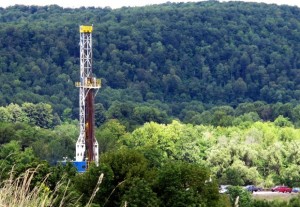U.S. Geological Survey Documenting Land Disturbance From Natural Gas Drilling
-
Marie Cusick
The United States Geological Survey (USGS) published a pair of reports today, which are part of larger series aimed at documenting and quantifying the landscape disturbance from Pennsylvania’s natural gas drilling industry.
The USGS-funded project has been underway for a little over two years and has documented a reduction of Pennsylvania’s interior forests– habitats for sensitive plant and animal species.
So far, the federal government has examined 14 Pennsylvania counties where drilling is occurring and plans to publish several more reports before the end of the year.
Lesley Milheim is a USGS scientist who co-authored the reports. She examined both conventional drilling and unconventional Marcellus shale sites between 2004 and 2010.
She says depending on the type of the development the landscape disturbance will change.
“The Marcellus sites are larger than the conventional sites, but there’s fewer of them so the pattern is different.”
Milheim says the biggest change they’ve documented is the reduction of interior forests.
Forest fragmentation can occur with the development of drilling infrastructure like roads and pipelines.
“While [sites are] under development, there’s a lot of equipment,” she says, “It can change the forest. Some species do not survive well in disturbed areas and will leave the area if there is development.”
Pennsylvania’s shale gas industry has put its support behind controversial new legislation that would change the way animals are added to the state’s endangered species list.
The bill would force the two state commissions that oversee the list to prove the presence of endangered species, rather than requiring gas companies to conduct their own habitat field studies first.

















